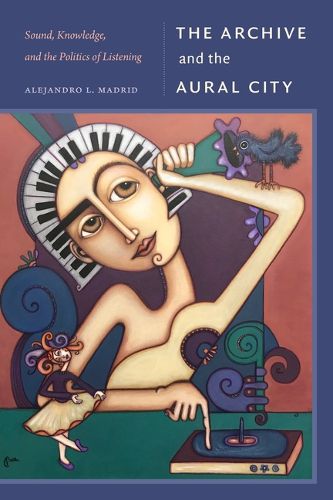Readings Newsletter
Become a Readings Member to make your shopping experience even easier.
Sign in or sign up for free!
You’re not far away from qualifying for FREE standard shipping within Australia
You’ve qualified for FREE standard shipping within Australia
The cart is loading…






In The Archive and the Aural City, Alejandro L. Madrid examines the possibilities for retrieving sounds from the archive that were not meant to be heard. Drawing on Angel Rama's notion of the Lettered City, Madrid proposes a notion of the Aural City--a Latin American urban intellectual elite for whom sound and listening are central to the creation, recreation, and circulation of new types of knowledge. While many of these elites carry forward a nationalistic agenda, Madrid contends that the Aural City's archives and the ways they are listened to and conceived through sound and music can also help dismantle dominant frameworks of national or colonial culture and build more inclusive spaces for intellectual exchange and political mobilization. From national archives in Latin America and colonial institutions abroad to sound exhibits, instruments, and internet-based archival projects, Madrid demonstrates how the development of urban spaces are understood through sound. In this way, he expands understandings of the archive's social and sonic power.
$9.00 standard shipping within Australia
FREE standard shipping within Australia for orders over $100.00
Express & International shipping calculated at checkout
In The Archive and the Aural City, Alejandro L. Madrid examines the possibilities for retrieving sounds from the archive that were not meant to be heard. Drawing on Angel Rama's notion of the Lettered City, Madrid proposes a notion of the Aural City--a Latin American urban intellectual elite for whom sound and listening are central to the creation, recreation, and circulation of new types of knowledge. While many of these elites carry forward a nationalistic agenda, Madrid contends that the Aural City's archives and the ways they are listened to and conceived through sound and music can also help dismantle dominant frameworks of national or colonial culture and build more inclusive spaces for intellectual exchange and political mobilization. From national archives in Latin America and colonial institutions abroad to sound exhibits, instruments, and internet-based archival projects, Madrid demonstrates how the development of urban spaces are understood through sound. In this way, he expands understandings of the archive's social and sonic power.